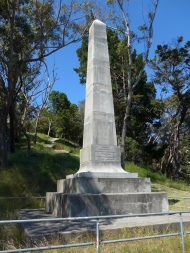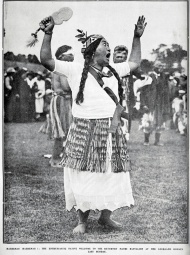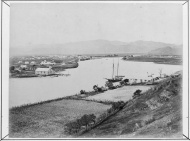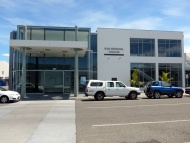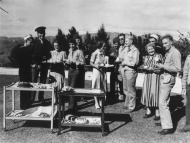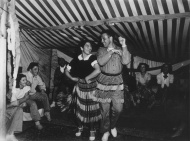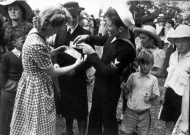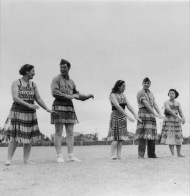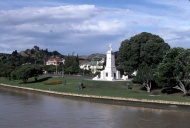Events In History
-
 7 March 1988Cyclone Bola strikes
7 March 1988Cyclone Bola strikesCyclone Bola, one of the most damaging cyclones to hit New Zealand, struck Hawke’s Bay and Gisborne–East Cape in March 1988 Read more...
-
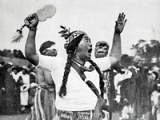 6 April 1919NZ (Māori) Pioneer Battalion returns from war
6 April 1919NZ (Māori) Pioneer Battalion returns from warThe Pioneer Battalion was one of only two NZEF formations to return from the First World War as a complete unit. Its welcome home was more extensive than that given to other troops. Read more...
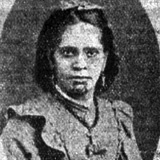 Riperata Kahutia
Riperata Kahutia
Riperata Kahutia became a well-known figure in the Poverty Bay region through her claims in the Native Land Court and the Poverty Bay Commission.
Read more...Articles
Regional rugby

The passion and parochialism of provincial rugby has helped give the game a special place in New Zealand’s social and sporting history. Read brief histories, highlights and quirky facts about each of New Zealand's 26 regional rugby teams.
- Page 14 - Poverty Bay rugbyHistory and highlights of rugby in the Poverty Bay
Related keywords
- takipu
- maori battalion
- south african war
- WW1 home front
- pioneer battalion
- maori in war
- whanganui city
- hms philomel
- royal navy
- te kooti
- marae
- ringatu
- historic places
- james cook
- memorials
- disasters
- weather
- floods
- treaty of waitangi
- te aitanga-a-mahaki
- riperata kahutia
- maori land court
- drink
- american forces
- new zealand wars
- NZ Wars memorial
- matawhero
- waerenga-a-hika
- maori food
- seafood
- rugby
- poverty bay rugby
- protest
- springboks
- apartheid
Gisborne (previously known as Tūranga) is the only city in the East Coast region. Gisborne was the region’s first Pākehā settlement and has always been by far the largest. In 1831 John Harris set up the first trading station in Tūranga on behalf of a Sydney firm. The founding of the town is attributed to G. E. Read, who settled on the Kaiti (east) side of the river in 1852, but later built stores on the west bank. Over the next 30 years other traders and missionaries also came. Conflict in Poverty Bay in 1865–66 drew the government’s attention to the strategic position of the settlement, and in 1868 the government bought 300 hectares of land for a town site. Rapid development came towards the end of the century on the back of a thriving pastoral hinterland. Two freezing works and many other industries were established. The city celebrated the bicentennial of Cook’s landing with great enthusiasm in 1969.



